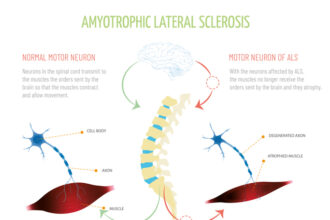Hair plays a pivotal role in shaping societal perceptions and our identity. As such, hair loss, also known as alopecia, can lead to profound emotional turmoil, including heightened anxiety and a significant decrease in life quality for those affected. Drug therapy is often the first line of treatment sought by individuals experiencing alopecia. While there are medications available that can alleviate some symptoms of alopecia, they are not without side effects, and their effectiveness varies considerably across individuals.
This highlights the urgent need for more effective treatments. In this context, groundbreaking research conducted at Yokohama National University in Japan on the role of oxytocin in hair growth has emerged as a beacon of hope. Oxytocin, a naturally occurring hormone, has shown a potential to promote hair growth in human hair follicles. However, the direct application of oxytocin is impractical due to its molecular size, which hinders skin absorption and its rapid breakdown in the body.
In a pivot towards finding a viable solution, researchers have explored the efficacy of cinnamic acid. This small molecule is not just capable of enhancing the expression of oxytocin receptors, but it also holds the potential to transform the lives of those affected by hair loss. By facilitating the entry of oxytocin into the system and promoting the expression of genes associated with hair growth in human dermal papilla cells, cinnamic acid could be the breakthrough we’ve been waiting for. These cells, found within the hair follicles, play a crucial role in hair growth. The study’s findings, which underscore the potential of cinnamic acid in activating oxytocin receptor expression, have sparked interest in the development of hair growth products that leverage this mechanism. Junji Fukuda, a professor at the Faculty of Engineering, Yokohama National University, and the study’s corresponding author highlighted the significance of these findings in potentially advancing hair care solutions.
Published on February 27 in the journal Scientific Reports, the study initially explored how oxytocin could upregulate gene expression related to hair growth in dermal papilla cells. Despite oxytocin’s unsuitability for topical application, the observable effects on hair growth gene expression were too significant to disregard. This led to a focus on cinnamic acid, which could enhance oxytocin’s hair growth effects by acting within the signalling pathway.
Experiments on dermal papilla cell cultures with varying concentrations of cinnamic acid revealed a dose-dependent increase in oxytocin receptor expression and hair growth-related gene expression at concentrations below 500 μg/mL. Tatsuto Kageyama, the study’s first author and an assistant professor at the Faculty of Engineering, Yokohama National University, underscored these findings.
The researchers also developed hair folliculoids as a novel and scientifically rigorous approach to test new hair growth treatments. These folliculoids, created from cells derived from multiple hair follicles, allow for the generation of reliable data by exposing a known variety of cells to the treatment. Although these folliculoids do not produce mature hair, they do develop hair shaft-like structures, which showed a 1.25-fold increase in length when exposed to cinnamic acid. This finding closely mirrors the hair growth effects observed with oxytocin in previous studies, further validating the potential of cinnamic acid in promoting hair growth.
Future research, a collaborative effort, will focus on in vivo studies with mice to assess the transdermal application’s efficacy, dosage requirements, and potential side effects of cinnamic acid. The discovery of cinnamic acid as a critical agent for promoting hair growth opens new avenues for enhancing hair growth treatments. Furthermore, understanding the oxytocin signalling mechanism’s role in promoting hair growth offers valuable insights into hair care science and accelerates the search for new therapeutic targets in drug discovery. Kageyama’s remarks underscore the transformative potential of this research in the field of hair care and treatment development, as well as the shared excitement and commitment among the research team.
More information: Tatsuto Kageyama et al, Cinnamic acid promotes elongation of hair peg-like sprouting in hair follicle organoids via oxytocin receptor activation, Scientific Reports. DOI: 10.1038/s41598-024-55377-y
Journal information: Scientific Reports Provided by Yokohama National University








